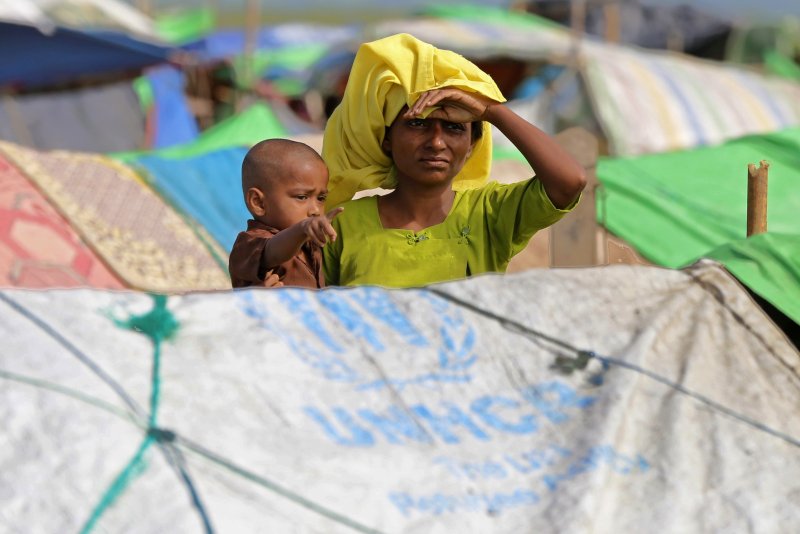The report found two-thirds of all refugees worldwide came from just five countries -- Syria, Afghanistan, South Sudan, Myanmar and Somalia. File photo by Hein Htet/EPA-EFE
June 19 (UPI) -- A record number of people were forcibly displaced last year as a result of persecution, conflict or generalized violence, the United Nations Refugee Agency said in a report Tuesday.
In the 76-page report, the U.N. High Commissioner for Refugees said nearly 69 million people were forced from their homes by the end of 2017 -- a record high and a trend that's continued for five years.
At least 40 million were internally displaced, almost 20 million were classified as refugees under the U.N. Refugee Agency mandate and another 5 million were Palestinian refugees. Three million displaced were classified as asylum-seekers, the report said.
"We are at a watershed, where success in managing forced displacement globally requires a new and far more comprehensive approach so that countries and communities aren't left dealing with this alone," U.N. High Commissioner for Refugees Filippo Grandi said.
The report found two-thirds of all refugees worldwide came from just five countries -- Syria, Afghanistan, South Sudan, Myanmar and Somalia.
The seven-year civil war in Syria created 6.3 million refugees by the end of last year. Fighting in the Democratic Republic of the Congo and South Sudan and the plight of 700,000 Muslim Rohingya refugees who fled Myanmar were significant contributors to the figures.
The analysis said Turkey took in more refugees, 3.5 million, than any other nation -- followed by Pakistan, Uganda, Lebanon and Iran.
For the first time since 2012, the United States was the largest recipient of new asylum applications, having received more than 330,000 last year. Germany and Italy received the second- and third-largest amounts, respectively.
The report said refugee movements across the Mediterranean decreased from 2016 to 2017. The vast majority of displaced, the report said, stayed close to home -- with only a small portion willing to seek refuge in more-remote locations.
The UNHCR also saw an increase between 2016 and 2017 in the number of refugees who returned to their country of origin.















